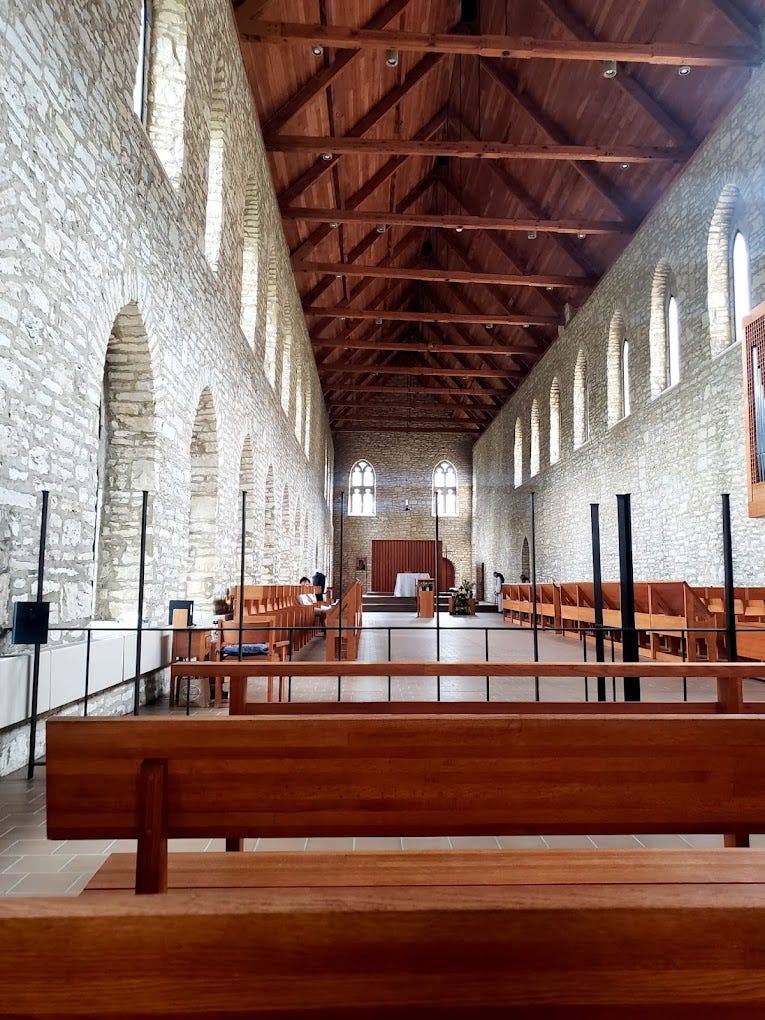I found a new career by accident.
Well, to be clear — it’s a job. I don’t really care whether it’s a career.
It offers me a strong mind-body connection, difficult but obtainable goals, a decent paycheck, and lots of room to learn. And the hours fly by.
In short, it frequently induces flowstate.
The title of my new position is “Machinist.” I stand in front of a machine, loading it with metal, and watching it run. As I do this, I’m listening to the sound it makes, and inspecting each part I make to verify that it’s running properly. Tool inserts may need to be changed. Maintenance may need to be performed.
What I really love about it is that I’m making something — poiesis.
These minerals are harvested from the ground and fashioned. Taking Thích Nhất Hạnh’s idea of Interdependent Mindfulness into cognition as I perform this, I am participating in a long chain of being which begins with millions of years of geological shift spurred by the birth of the cosmos in a big bang. And now I am creating a tool which contributes to the good, all made possible by distributed cognition — that mysterious web of knowledge and language which makes these minded primates called “humans” capable of communicating complex ideas via a mixture of symbolical representation and social organization.
(And even that’s not black and white. At larger scales, this cognition creates politics, where we debate and fight this way or that over what we believe we should be making and how, and out of what.)
Thay1 talks about respecting a variety of being: animal, vegetal, mineral. Every item I touch, inanimate or not, resonates with the reverberations of eternity.
(Yes, I am a mystic, albeit a skeptical one. Although not cynical.)
The Ultimate Meditation
When one looks at how the monastics in the Order of Interbeing behave, it is consistent with what I saw of the monks at the New Melleray Abbey.
Those monks did everything in service to “God,” Being itself (if one wishes to, as I do, take a Heideggerian interpretation of Aquinas). Each act, from sweeping the floor to putting nails into the cedar coffins they made for dhana, was imbued with a sacred sensibility, and a recognition that each one of them was a mere bodily vehicle for divinity.
When at work, I attune my mind-body to the task. Time is of the essence. “If the machine isn’t running, we aren’t making money,” saith my boss, correctly.
Perhaps Pearl Jam was ahead of the curve on the popularization of Western Buddhism (in the same year that another Pacific Northwest band called “Nirvana” entered the market) when Eddie sang:
Evenflow—
Thoughts arrive like butterflies.
He don’t know,
so he chases them away.
It is, of course, said in many Vipassana, Zen, and Thaypassana circles that, in meditation, thoughts rise and fall. The objective is to simply notice them, and not get attached to them.
That is my entire day as a machinist. I have an objective: create good parts. Intellectual that I am, thoughts color this entire process. If I cling to them, I make bad parts (or, at least, I lose my train and no longer create them profitably, ie efficiently.)
When I focus on performing my task, I am praising (and embodying) God, via Christ consciousness (meta-cognition).
Take-Home
We have one chance at this act of life. Paraphrasing (and taking liberties with) John Vervaeke: the meaning of Life is to find the meaning in Life.
Every moment is pregnant with a creation ready to emerge. It is my duty to attempt to bring it to term.
My job helps me do that. And, like a surprise finding of a fertilized egg after an evening of wanton abandon, ready or not.
Thay: “Teacher” — an affectionate term for Thích Nhất Hạnh



